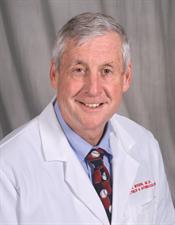New Book by UR Medicine Gynecologist, Wilmot Experts Explores Menopause and Breast Cancer

For many women, breast cancer and menopause are intimately linked. Both tend to occur later in life, and for women who develop breast cancer at younger ages, treatment can bring on menopause years before it would otherwise occur.
The common factors are the hormones produced by the ovaries. In menopause, the ovaries stop producing the hormones estrogen and progesterone. Whether that happens naturally or as the result of cancer treatment, menopause sets off a slew of life-disrupting symptoms including hot flashes, mood swings, night sweats and vaginal dryness.
“Most people diagnosed with breast cancer are in menopause and struggling with symptoms, or they’re thrown into menopause and are struggling with symptoms,” says UR Medicine gynecologist James R. Woods Jr., M.D., whose practice focuses on menopause.

Hormone replacement therapy has long been used to manage those symptoms and longer-term changes such as bone loss. But those hormones are also associated with breast cancer risk, making the question of how to address the symptoms more complicated.
Woods has compiled a new book on the topic, titled The Little Book of Menopause: Living with the Challenges of Breast Cancer (University of Rochester, $49.99). The book is designed to help women and their care providers better understand the issues of menopause in the context of breast cancer. It features essays and chapters by many experts from Wilmot Cancer Institute and from institutions around the country, including the Stanford University School of Medicine and Beth Israel Deaconess Medical Center.
“Breast cancer survivors do not want to think of themselves as special,” Woods says. “They only want reassurance that their care will be based on compassion and understanding of what breast cancer means to a woman.”
Chapters cover topics such as estrogen’s relationship to breast cancer, whether women who have had cancer can use hormone replacement therapy, mammography and breast cancer screening, living with breast cancer and cancer survivorship.
“Care providers will find information in this book valuable as they help their breast cancer patients navigate this life-long journey” Woods says.
The book, co-authored by UR Medicine gynecologists Elizabeth Warner, M.D., and Adrienne Bonham, M.D., is available on Amazon.com.


